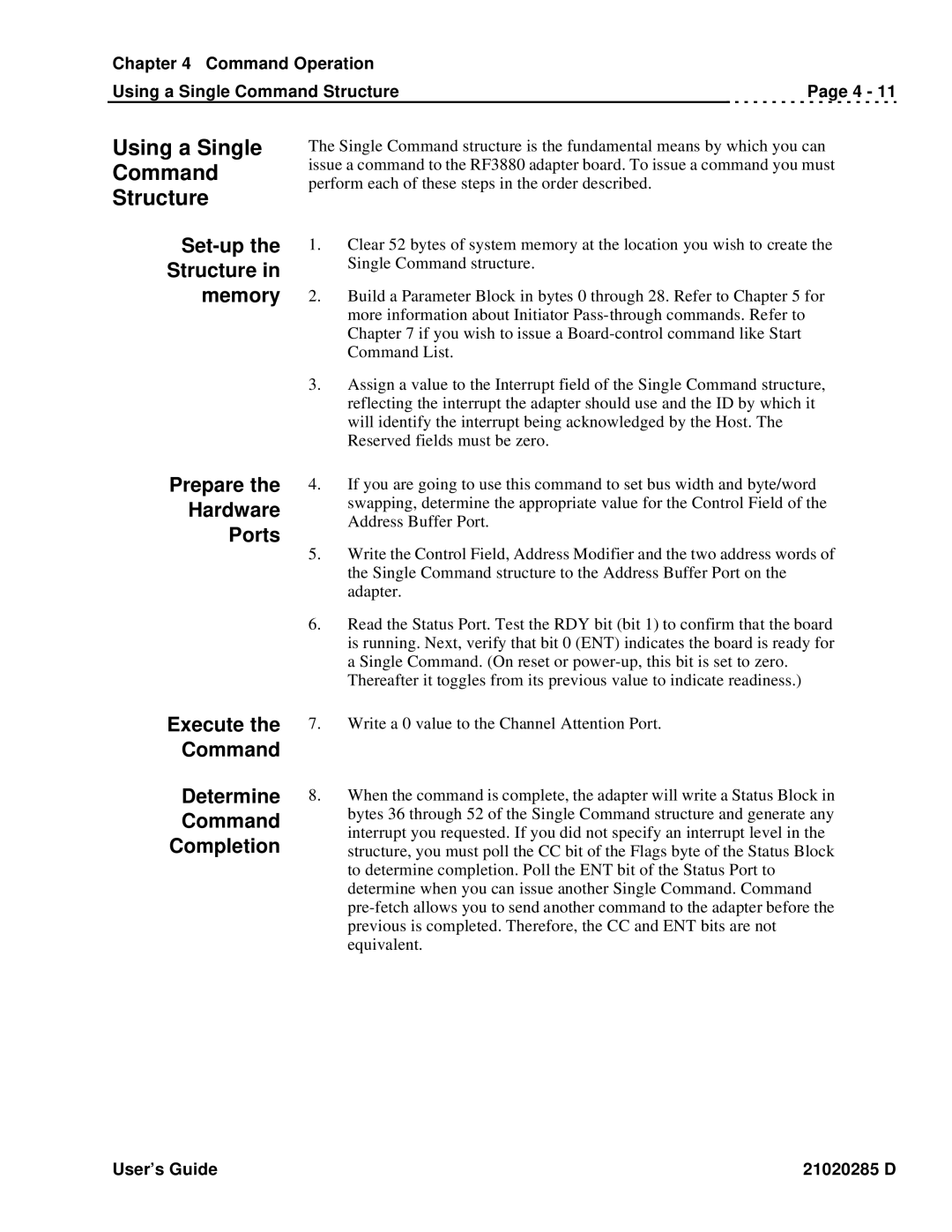Chapter 4 Command Operation
Using a Single Command Structure | Page 4 - 11 |
Using a Single
Command
Structure
Structure in
memory
Prepare the
Hardware
Ports
Execute the
Command
Determine
Command
Completion
The Single Command structure is the fundamental means by which you can issue a command to the RF3880 adapter board. To issue a command you must perform each of these steps in the order described.
1.Clear 52 bytes of system memory at the location you wish to create the Single Command structure.
2.Build a Parameter Block in bytes 0 through 28. Refer to Chapter 5 for more information about Initiator
3.Assign a value to the Interrupt field of the Single Command structure, reflecting the interrupt the adapter should use and the ID by which it will identify the interrupt being acknowledged by the Host. The Reserved fields must be zero.
4.If you are going to use this command to set bus width and byte/word swapping, determine the appropriate value for the Control Field of the Address Buffer Port.
5.Write the Control Field, Address Modifier and the two address words of the Single Command structure to the Address Buffer Port on the adapter.
6.Read the Status Port. Test the RDY bit (bit 1) to confirm that the board is running. Next, verify that bit 0 (ENT) indicates the board is ready for a Single Command. (On reset or
Thereafter it toggles from its previous value to indicate readiness.)
7.Write a 0 value to the Channel Attention Port.
8.When the command is complete, the adapter will write a Status Block in bytes 36 through 52 of the Single Command structure and generate any interrupt you requested. If you did not specify an interrupt level in the structure, you must poll the CC bit of the Flags byte of the Status Block to determine completion. Poll the ENT bit of the Status Port to determine when you can issue another Single Command. Command
User’s Guide | 21020285 D |
